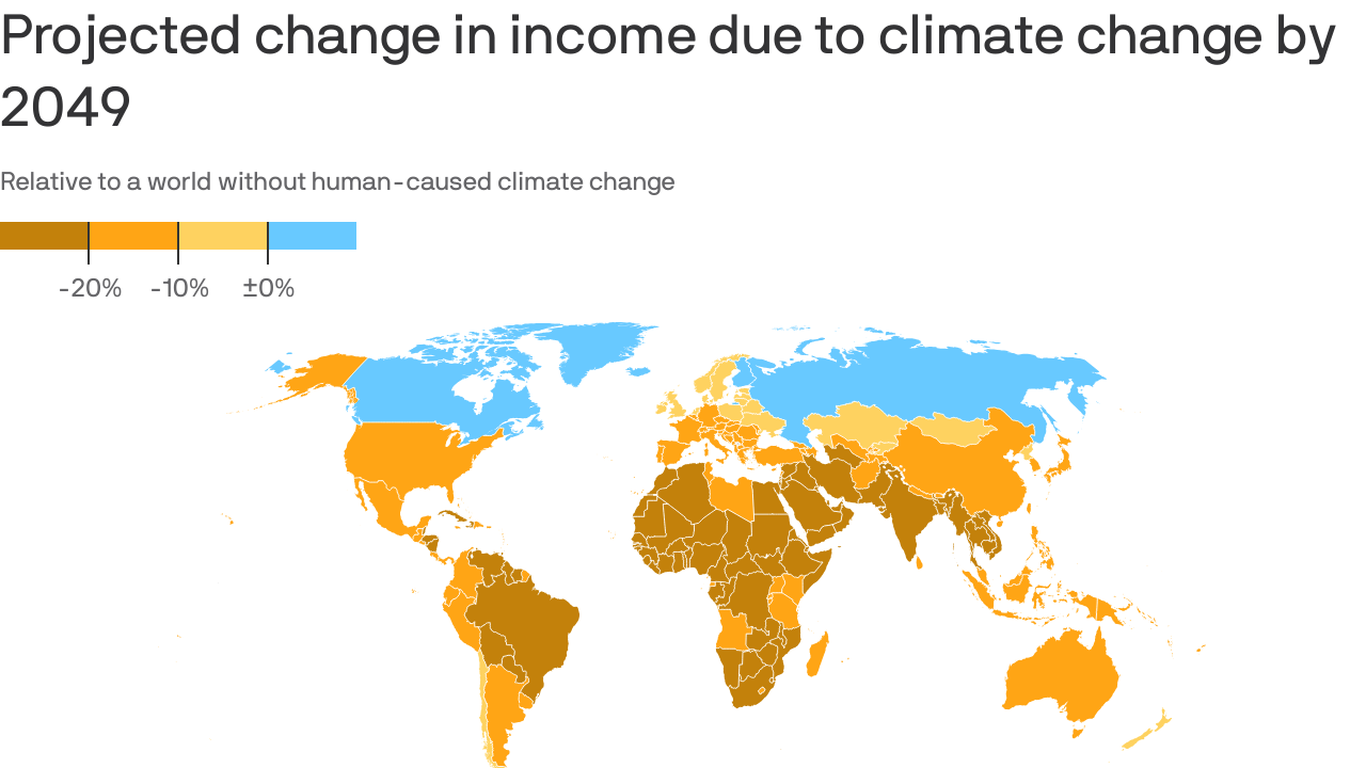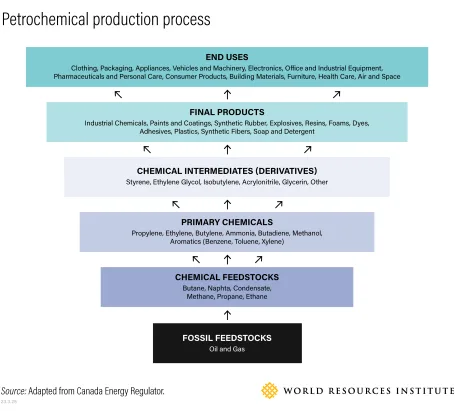Summary:
- A new study published in “Nature” finds that even if CO2 emissions are significantly reduced now, the global economy is still committed to a 19% income reduction by 2050 due to climate change.
- The damages caused by climate change are projected to be six times larger than the costs needed to limit global warming to two degrees, with estimated global annual damages of 38 trillion dollars by 2050.
- The impacts of climate change will be felt most strongly in regions like South Asia and Africa, with the United States and European Union also facing significant economic losses.
- The study shows that the countries least responsible for climate change will suffer the most, highlighting the need for urgent structural changes towards renewable energy to stabilize the planet’s temperature.
Key Passages:
04/17/2024 – Even if CO2 emissions were to be drastically cut down starting today, the world economy is already committed to an income reduction of 19 % until 2050 due to climate change, a new study published in “Nature” finds. These damages are six times larger than the mitigation costs needed to limit global warming to two degrees. Based on empirical data from more than 1,600 regions worldwide over the past 40 years, scientists at the Potsdam Institute for Climate Impact Research (PIK) assessed future impacts of changing climatic conditions on economic growth and their persistence.
Overall, global annual damages are estimated to be at 38 trillion dollars, with a likely range of 19-59 trillion Dollars in 2050. These damages mainly result from rising temperatures but also from changes in rainfall and temperature variability. Accounting for other weather extremes such as storms or wildfires could further raise them.
“Our analysis shows that climate change will cause massive economic damages within the next 25 years in almost all countries around the world, also in highly-developed ones such as Germany, France and the United States,” says PIK scientist Leonie Wenz who led the study. ”These near-term damages are a result of our past emissions.”
Additional coverage:



[...]
Read the full post at PIK Postdam.





